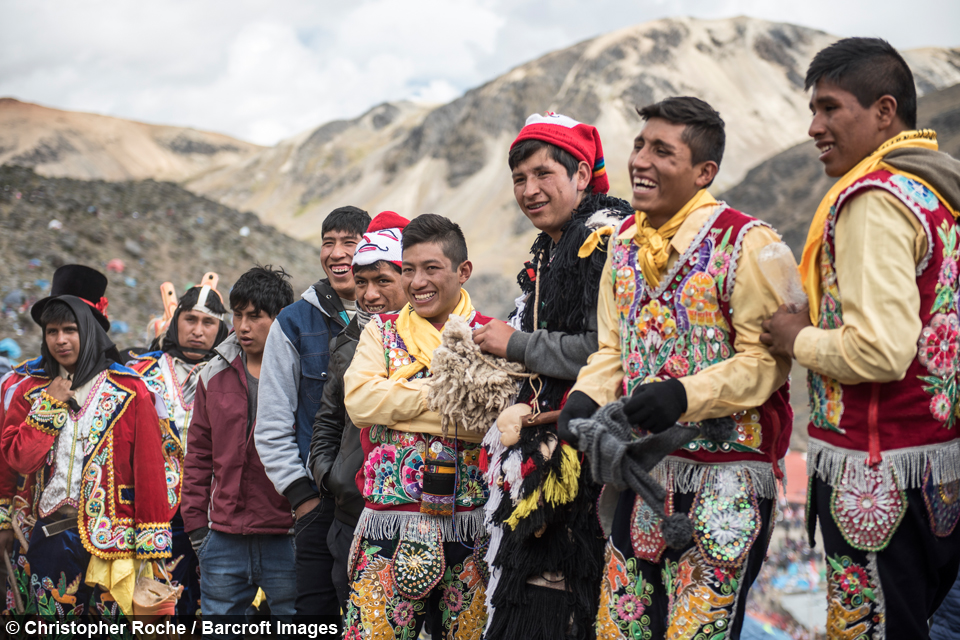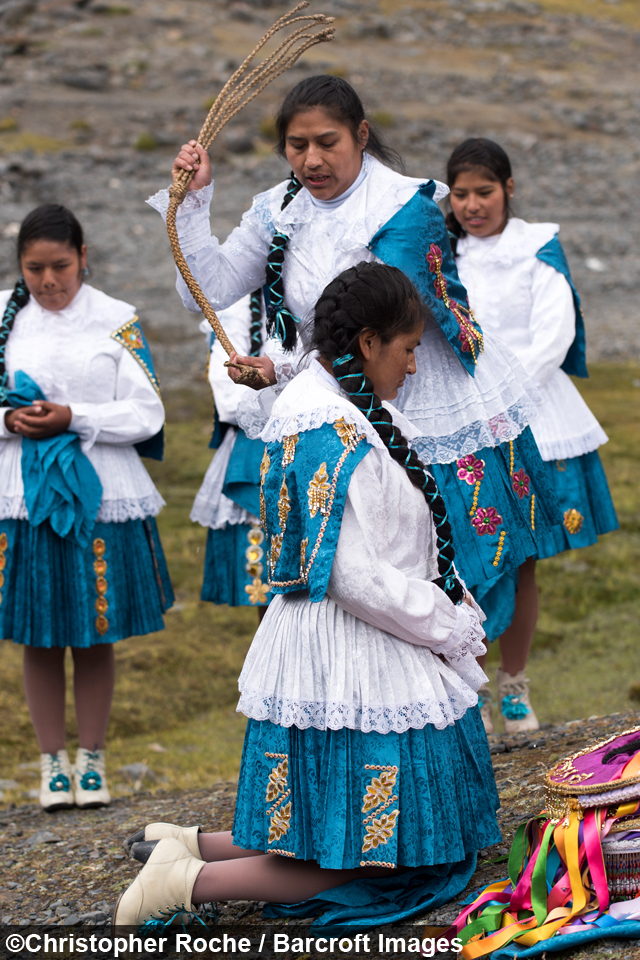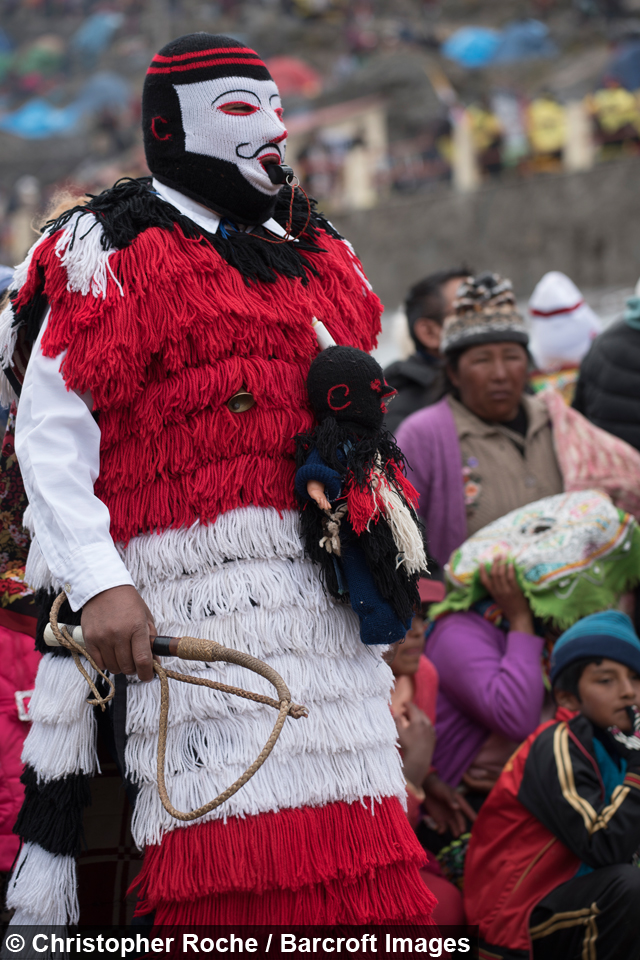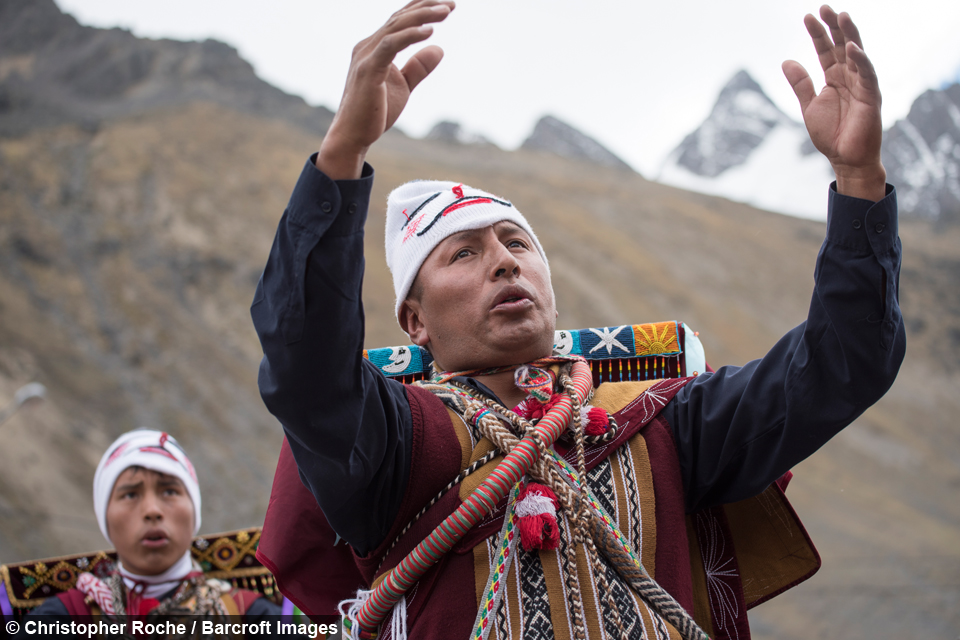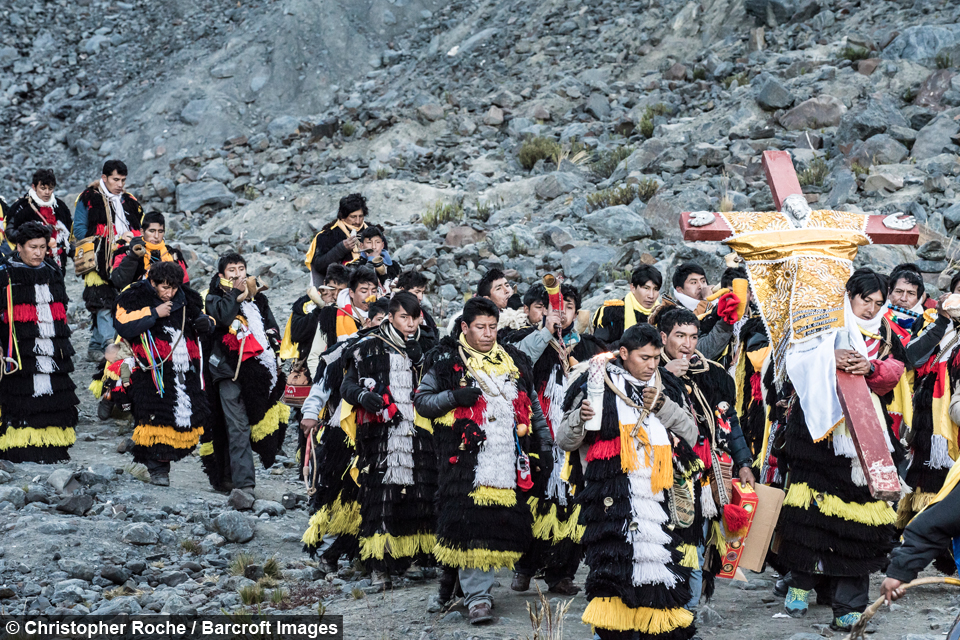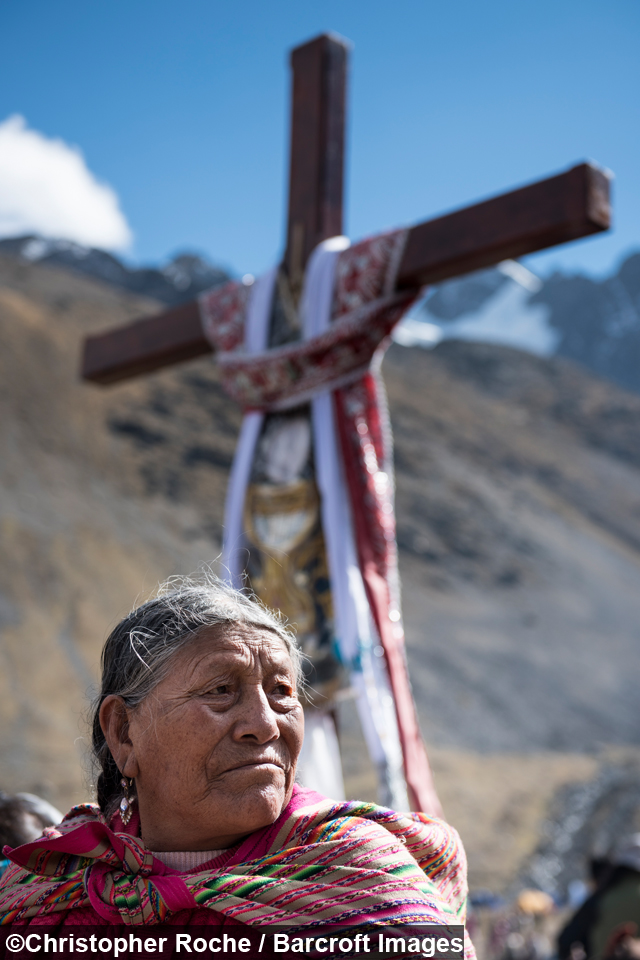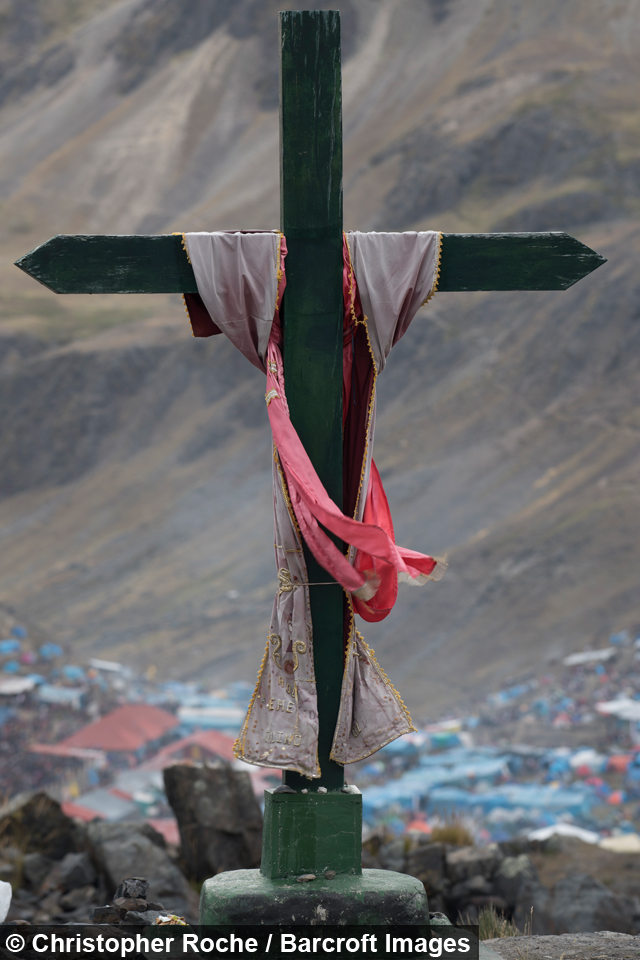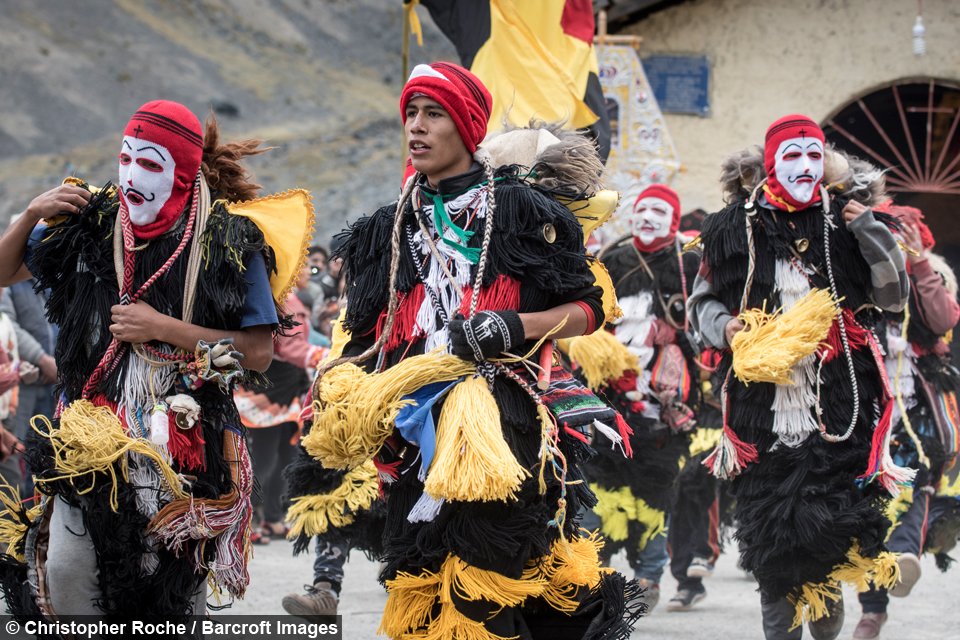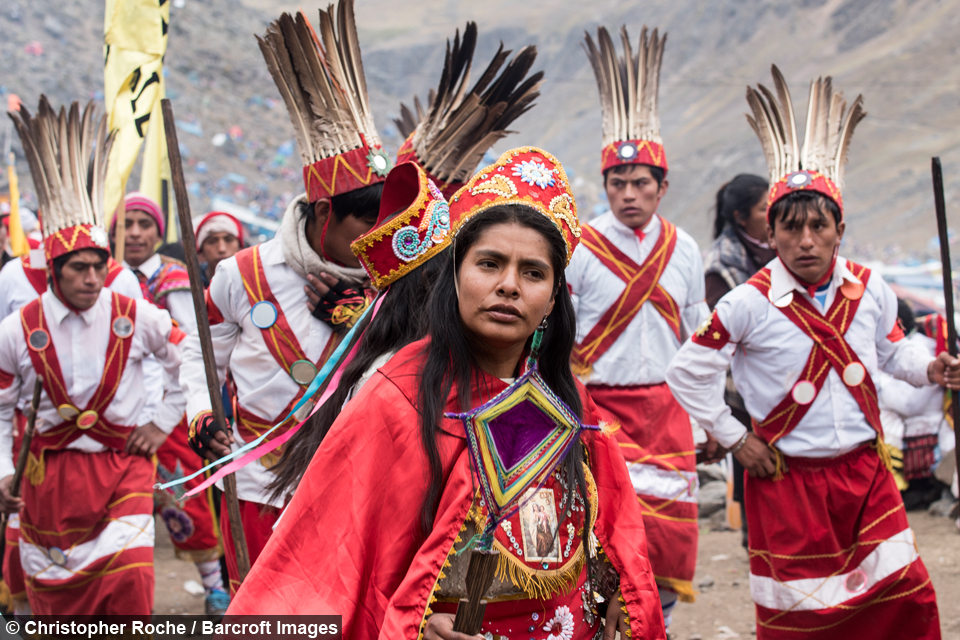Quyllur Rit'i: A festival of colour and religious crossover
By Hannah Stevens @Hannahshewans
Scroll down for the full story
There are many descriptions - and spellings - of the Quyllur Rit’i festival, which combines Incan mountain worship with Catholic traditions.
Each year, days before the celebration of the Feast of Corpus Christi - a Latin rite which celebrates the belief in the body and blood of Jesus Christ’s presence in the Eucharist - thousands of worshippers travel to the base of the Sinakara mountain for the vibrant festival.
Photographer Christopher Roche ventured deep into the Andes to witness the beautiful spectacle.
He said: “I decided to visit the area to witness the festival as I have spent the last couple of years working on a photographic project exploring different faith traditions around the world.
“I’ve published a couple of books on the subject - The Priests and Pilgrims of Ethiopia and Banaras, Holy City.”
An old religious procession called the Qoyllority, which means Shining Snow, is practiced by those who live in the high Andes.
Each small village or clan in the high Andes sends a delegation of colour dancers and pauluchas to the Chapel of Qoylloriti, which is situated at the base of the Sinakara mountain at 4600 metres above sea level.
The festival originates from the tale of a young boy who helped an alpaca shepherd take care of his animals, the shepherd’s father returned his kindness by making him new clothes of the highest quality.
The Bishop of Cusco was interested in the young boy’s generosity and wanted to meet him and asked the people of Ocongate to find him.
But the boy disappeared and the shepherd died of sadness, but at the place this occurred an image appeared of the crucified Christ.
Despite continued dedication to the festival, Roche believes the celebration has become more of a spectacle to some worshippers.
Christopher said: “I think the festival - like others around the world - is becoming more of a celebration and a spectacle, even amongst locals.
“More dance groups turn up than previously and it has become less of a strictly religious pilgrimage.
“Having said that, there are tens of thousands who take it very seriously indeed.”
Worshippers begin to ascend the Sinakara at 4am to reach the Chapel of the Lord of Qoylloriti - which is built over the rock with Christ’s image.
However, the joyous mood transforms into a sombre one higher up in the mountains.
Christopher added: “Throughout the festival there was an incredible energy - non stop music and dancing.
“However in the church the mood was very sombre and devotional.
“The further up the mountains and glaciers one went the focus changed from Catholicism to a pre-Christian mountain worship.
“The altitude, at times over 5000m, seemed to make everything twice as vivid.”
Other attendees of the festival include the ten brotherhoods that belong to the Paucartambo, Qusipicanchis and Tahuantinsuyo provinces.
Simulated battles take place on the mountain and their resolution leads to the cohesion of all the brotherhoods.
Many other rituals occur during the festival which is celebrated by Incan worshippers and Christians alike.
Christopher said: “My favourite moment was trekking up to the Sinakara glacier before dawn. An altitude of 5200m and watching the Ukukus perform an initiation ceremony before marching back down into the valley carrying crosses.
“It felt like I was on the set of a medieval movie - with armies of different colours appearing over various mountain tops.
“The scale of it was incredible and too big to capture with a camera.”
